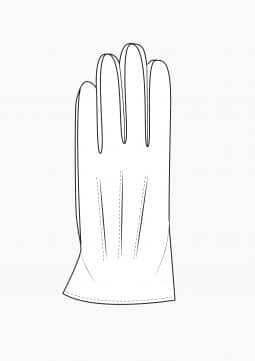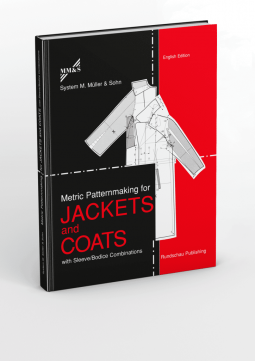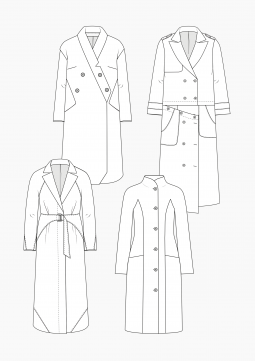Sewing Toggle Closures
Deutsch
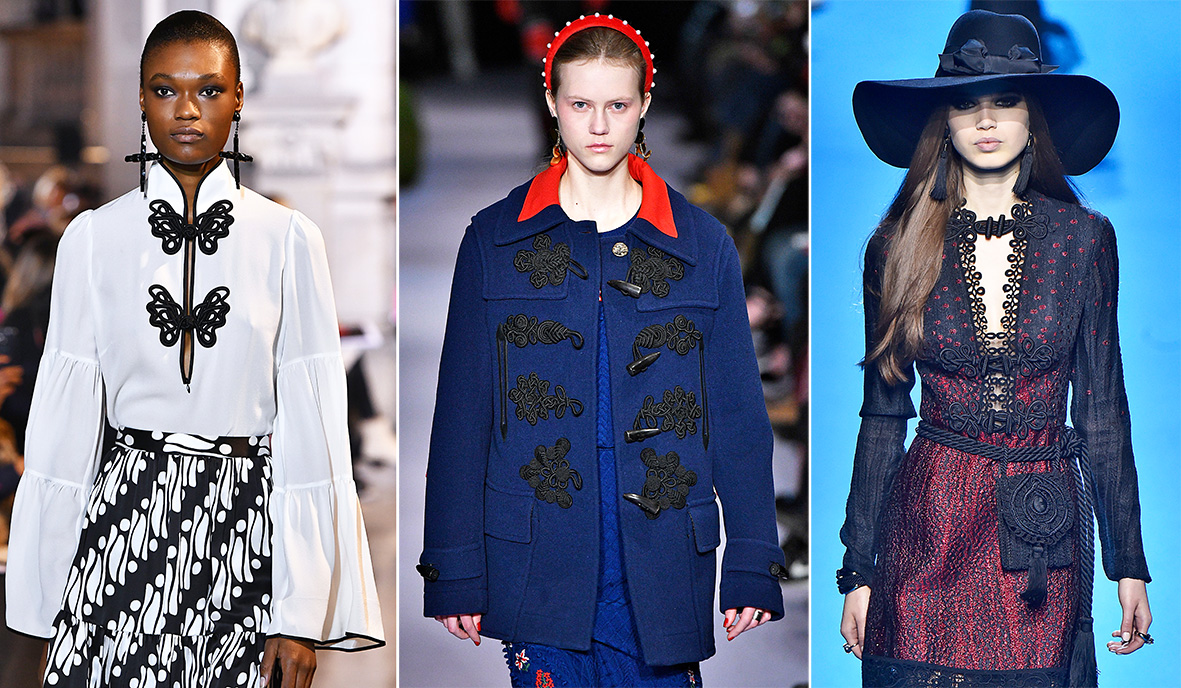
The classic toggle closure features two ends, one with a loop and one with a button or t-shaped piece that slips into the loop. It is believed that this button shape is the oldest form of today’s button. Toggle closures are usually used in jackets and coats – especially the classic duffle coat – as well as hunting apparel and costumes. A particularly noble variant of this closure is the toggle closure made with trimmings. However, these artful, handcrafted jewelry closures can be more frequently found on blouses, dresses, blazers and jackets. The classic toggle closure can be done relatively quick and easy. We also offer a step-by-step guide for the variant with trimmings.
This article is an excerpt from the reference book Atelier – Fachwissen aus der Praxis – Teil 1 . In this book you will find many more instructions on textile processing and tutorials on decorative jewelry techniques.
Sewing a Toggle Closures
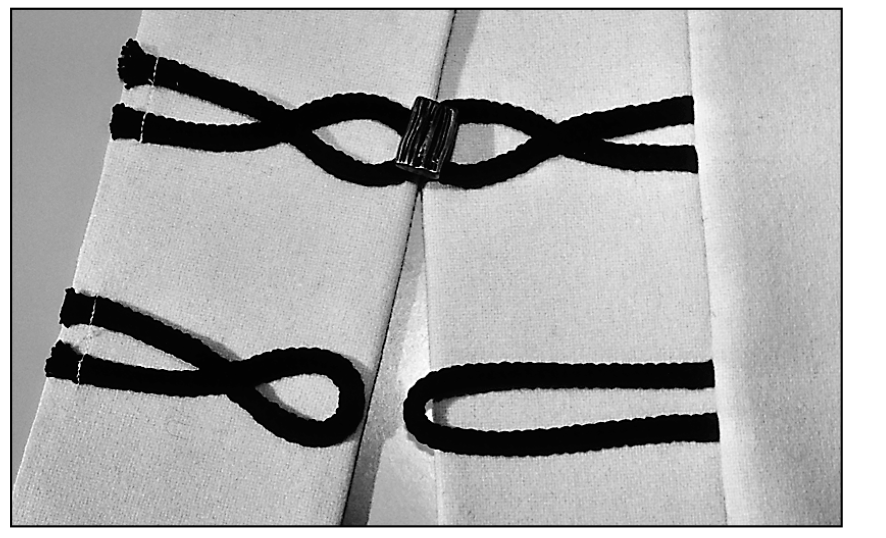
If a jacket closure is processed edge to edge and the model allows a seam parallel to the center, a decorative toggle closure can be sewn with a tight cord very quickly. The cord size depends on the fabric quality and toggle shape.
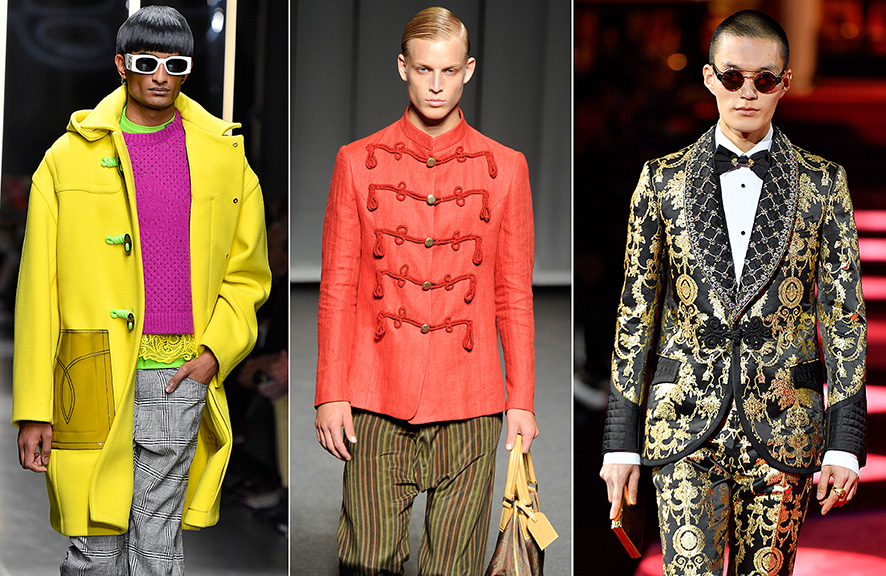
Stitch the cord onto the seam allowance at the specified intervals, create a loop projecting on the edge and sew the other end with a distance of 1 cm onto the seam allowance. After closing the seam, the cord is crossed over. The upper cord must always come from the same direction. The crossing point is invisibly connected to itself and the resulting loop is sewn so firmly onto the fabric that only the front part remains as an opening for the toggle. For the underlap, less cord length is needed. The loop extends only to the edge, is sewn firmly and completed with the toggle.
Appliqué with Cords
This technique is very popular in the current folklore trend. Clothes can be decorated in an Asian- look or Western- style. It can always be found in historical clothing or local costumes. It is very effective as a back yoke, cuffs or hem decoration, when harmoniously matched in color. Distribution and arrangement is model-related. Variations enrich the overall picture.

- First, the application is made. The zigzag stitches are concealed by the cord at the edge of the appliqué. This gives you an optimal
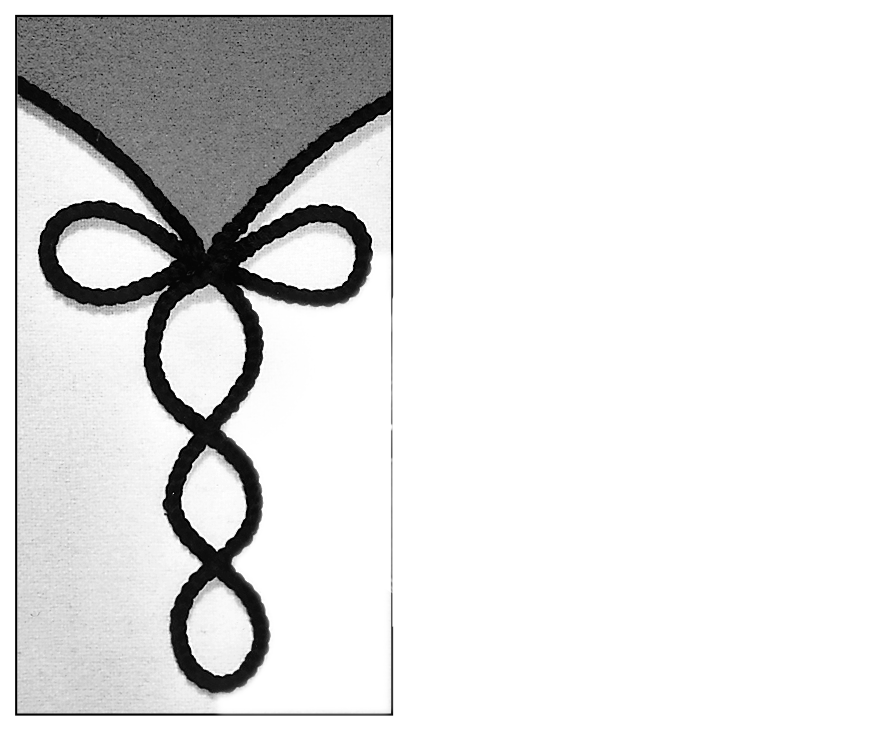
- When working up the motif, the cord must flow into itself. At the top, the cord runs from below into the bow. Change when repeating the bow. It is easy to sew in each turn. The stitches must be invisible.
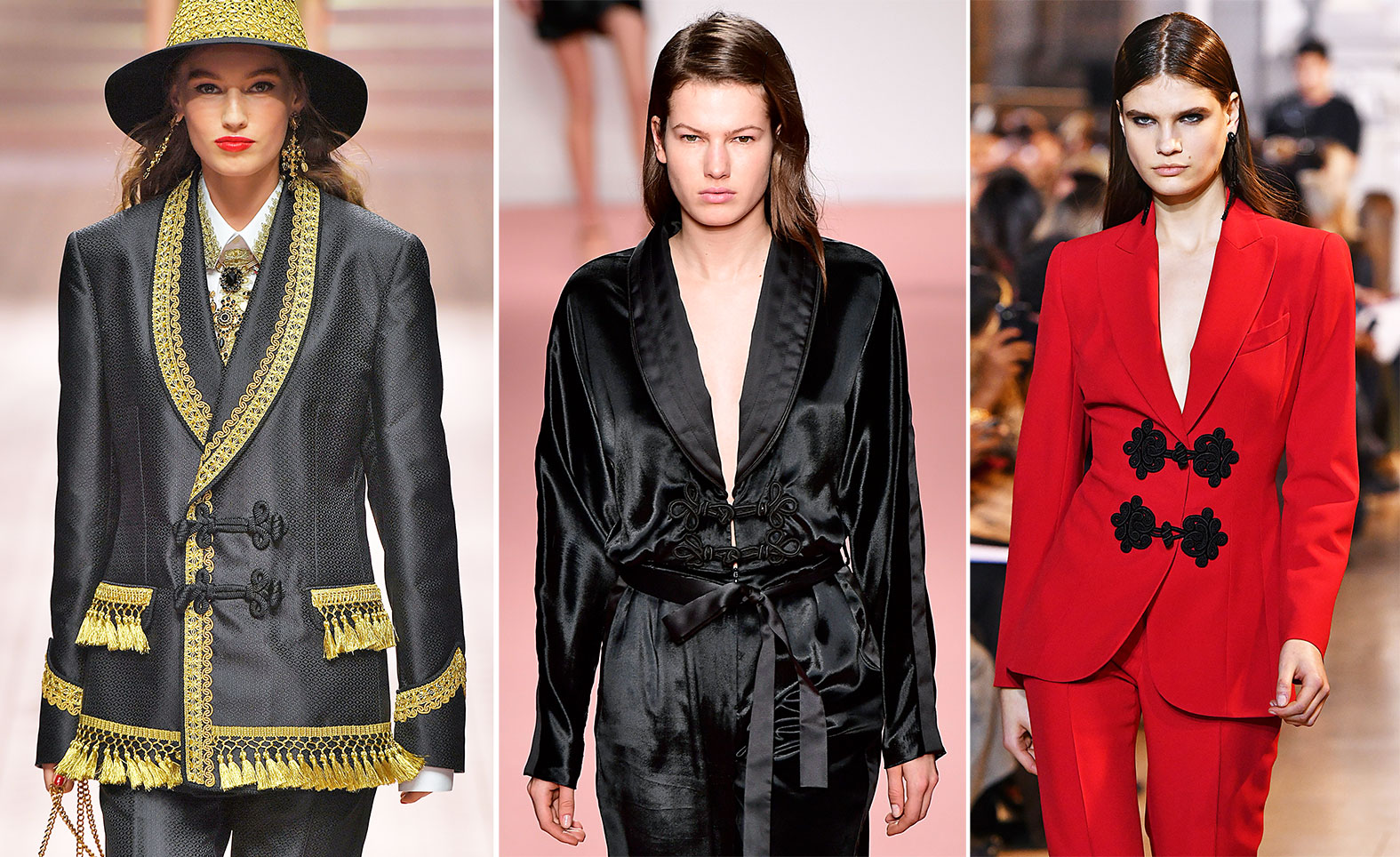
Trimmings-Toggle Buttons
Knotted Ball Button
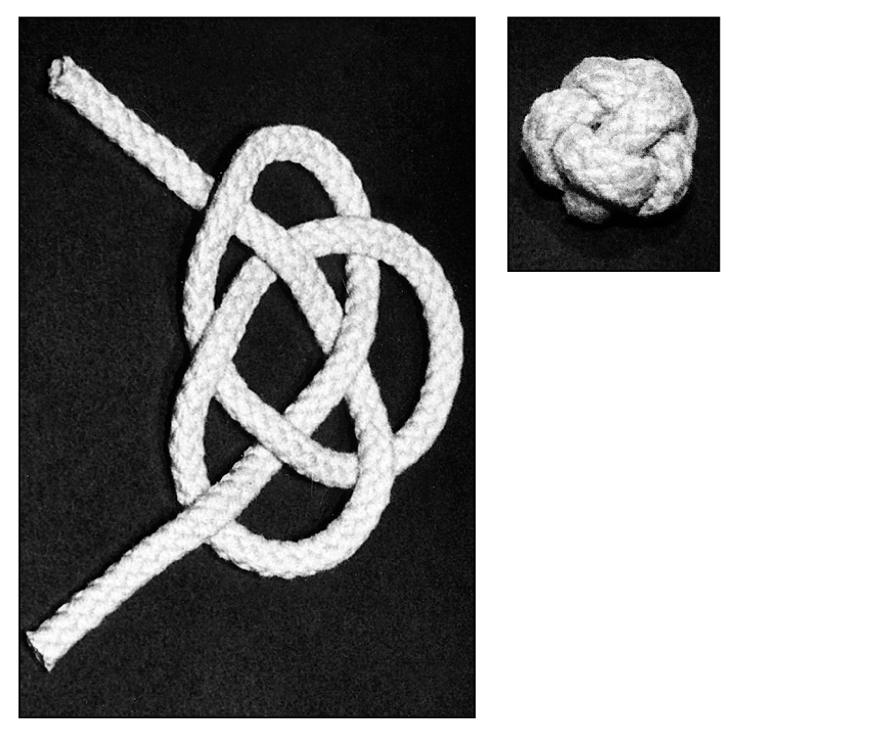 The pictured button is made of a strong cord.
The pictured button is made of a strong cord.
To match the color of the fabric, the knotted knobs can be made out of fabric tubes of the same material. A precisely tuned cord can be made of soft wool in the desired thickness. The size of the ball depends on the thickness of the processed material. To create a 2 cm button, a 20-25 cm long cord with a 6 mm cord diameter is needed.
Instructions
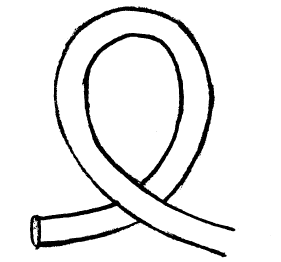
1. Place the cord from left to right to the sling.
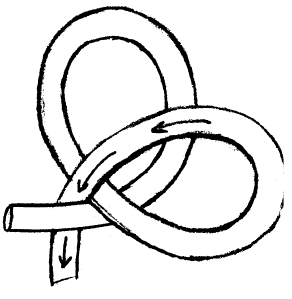
2. Another loop comes over and under the first loop.
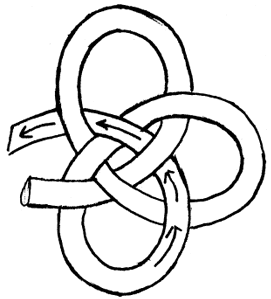
3. Overlay a third loop and braid through the other two loops as shown. While weaving loosen the loops.
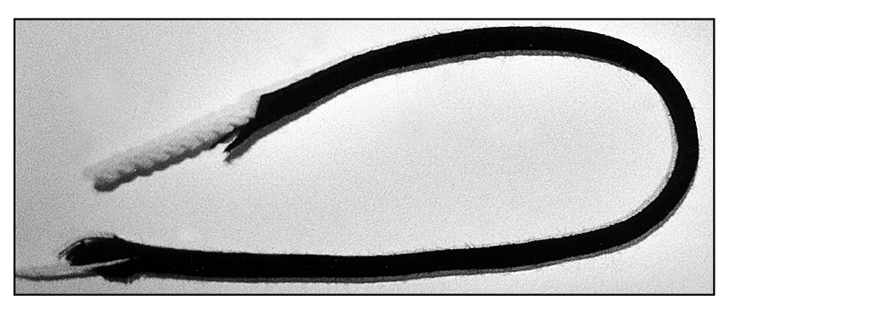
4. Tighten the loops evenly into a ball. When using slippery material, secure with hand stitches. Cut back the cord ends and hand stitch them flat at the bottom. TIP: The button is of even higher quality when covered with lining.
Toggle Closure with Trimmings
or Cossack or Hussar Seal
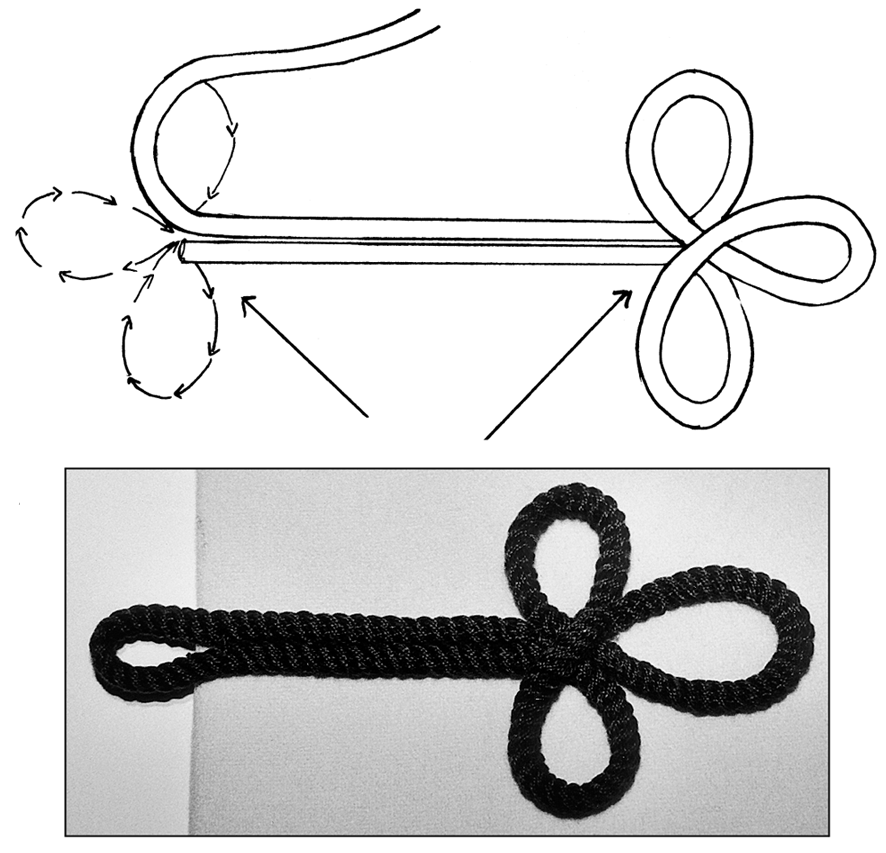
- A cord or fabric tube made of the outer fabric with a retracted cord can be used for this variation. The seam at the fabric tube must always be at the bottom.
- We distinguish between a lateral and a central closure.
- Important is the crossover of the slings. The connecting straight lines at the side closure, or the lines leading to the middle must lie underneath. This results in a harmonious picture and the cord ends can be sewn invisibly under the crossing points.
- The desired size and shape is first inserted and fixed with small stitches on the bottom. The cord consumption depends on the distance and loop size. It is useful in the lateral closure to make an underlying, concealed closure to avoid stretching the outermost loops.
Matching pattern constructions and patterns for coats, jackets and dresses can be found in our online shop.


